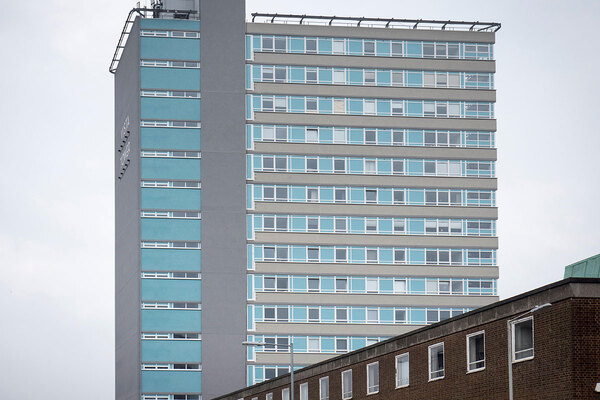Executive stress
After a difficult few years the Northern Ireland Housing Executive last week announced that many of its functions are to be split and its homes transferred. Here, Rhiannon Bury finds out how the termination of its multi-million repairs contracts means the UK’s largest landlord is going down in a blaze of ignominy
Procuring repairs contracts for 90,000 homes was never going to be an easy task. But in recent years, the Northern Ireland Housing Executive has proved exactly how important it is to do the job properly.
Its reputation has taken a real battering due to its handling of responsive repairs contracts. Criticism has come thick and fast, from the top levels of government to Northern Ireland’s most senior auditors. The problems - which even led the NIHE’s chief executive to admit he was embarrassed to face a committee of MPs following a critical report - could not have come at a worse time, either. They emerged as the NIHE’s very future was under discussion as the Northern Ireland Government drew up plans for the future of housing in the country. At this critical moment the NIHE’s chair also resigned, citing a ‘challenging relationship’ with the Northern Ireland Government’s Department for Social Development.
So where did things go wrong and what lessons can other landlords learn from this cautionary tale?
The NIHE has certainly spent a tidy sum in digging its hole. During the five-year period 2006/07 to 2010/11, it paid £200 million to responsive maintenance contractors.
Prior to 2009, however, the NIHE had an excellent track record of delivering repairs to its properties. Regular reports on its progress on maintenance by the Northern Ireland Audit Office found the service to be ‘exemplar’. It was one of eight public bodies designated by the Northern Ireland Government as centres of procurement expertise, a mark of companies which procure work fairly and efficiently.
Problems unfold
But in 2009, concerns began to emerge from whistle-blowers within the organisation who felt its procurement processes and contract management were not up to scratch. The DSD undertook a number of reviews, and found failings and weaknesses around the repairs contracts. It found problems around the investigation and reporting of suspected fraud, poor performance of contractors and an overall lack of control which allowed contractors to produce poor work.

The Northern Ireland Housing Executive’s Rathcoole estate in Newtownabbey, County Antrim
In April 2011, following a lengthy investigation, the NIHE announced its decision to terminate its responsive maintenance contracts with Red Sky, a contractor based in east Belfast with a deal to deliver repairs to homes worth some £7 million a year. Investigations by the Northern Ireland Government had found ‘significant overpayments’ to the organisation partly because NIHE staff were not checking work was actually being carried out, and Social development minister Nelson McCausland stepped in to try to stop the NIHE scrapping the contract in a bid to save local jobs and investigate the allegations properly. He asked NIHE bosses to reinstate Red Sky until a new system for awarding contracts was introduced. Shortly after, Red Sky went into administration.
Mr McCausland’s involvement was criticised by former social development minister Alex Attwood, who said in a statement to the media at the time: ‘It is not an answer in terms of public confidence in public procurement, or in terms of public monies, that the response to concerns about the behaviour of other contractors is to reinstate the one contractor where there is a lot of evidence of overcharging and bad performance.’ the NIHE has since recovered around £650,000 from Red Sky. The contractor had been carrying out work badly, or not carrying it out at all, the investigation team found.
Closer scrutiny
In the end, the contract was scrapped as planned, with more than 200 employees losing their jobs. The controversy prompted the DSD to launch a wider investigation into the NIHE’s management of maintenance contracts.
Then, in September 2012, the Northern Ireland Audit Office produced a damning report, saying the previously identified concerns had not been improved upon and that NIHE senior management did not take the problems ‘sufficiently seriously’.
The report concludes: ‘Based on our findings and in the absence of concrete evidence to the contrary, we can only conclude that, for many years, there has been a very significant risk to value for money in responsive maintenance expenditure. Indeed the weaknesses in assessment, reporting and management oversight of contracts, particularly at a high level within NIHE, left the organisation exposed to impropriety and fraud.’
Weeks before the report came out, Brian Rowntree, the long-standing and much-respected chair of the NIHE, stepped down, citing ‘personal stress ’ and ‘a challenging relationship’ with the DSD for his departure.
The NIHE did not want to comment on the problems, or a forthcoming public accounts committee report that will set out the next steps for the organisation in the coming weeks, but chief executive John McPeake has previously expressed his disappointment over the problems. He told the PAC in the Northern Ireland Assembly in September that he was ‘embarrassed’ to have to face them in the days following the NIAO report.
As a result of the problems, 29 members of staff have been disciplined, one of whom was given a final written warning, but Mr McPeake admitted there were other members of staff who had since retired but could have faced sanctions. He told the PAC the disciplinary process is not yet over but that responsibility for the failures lies with senior managers, in some cases because of a lack of adequate training for lower level staff.
Lessons to be learned
Jim Dennison, head of operations at the Chartered Institute of Housing in Northern Ireland, said: ‘It is hugely important that landlords make sure front line staff are supported by clear organisational policies, procedures and standards. It is not enough to just have these in place, they need to ensure that regular training and communications reinforce these standards so they become embedded in the working culture.’
Peter Curran, partner at Belfast-based law firm Arthur Cox, says housing associations need to be more careful than ever that they are complying with complex rules surrounding procurement thanks to a number of recent court cases which have proved how strict the law can be.
‘Social housing organisations are increasingly aware of the need to ensure their tender processes are fully compliant with procurement legislation and the vast body of procurement law that has now been developed through the courts: this is certainly true in Northern Ireland where the sector is very mindful of the need to be compliant,’ he explains.
The DSD did not respond to Inside Housing’s requests for comment.
It is perhaps surprising that such a highly respected organisation could appear to fall so far, so fast. But a source close to the situation said: ‘It could be that these problems have only just emerged. For a long time we didn’t have politicians in charge of housing, so now they are looking at it in more detail and problems are being found.’
The forthcoming PAC report is likely to herald another battering for the NIHE if it is found that no improvements have been made. The organisation perhaps doesn’t need to worry too much about this because the government review into its future means it is set to lose its landlord function. But the sorry saga contains a salutary lesson for other landlords on how not to run repairs and maintenance contracts.
Timeline: The Northern Ireland Housing Executive’s repairs contracts crisis

April 2009
Concerns are raised about whether the Northern Ireland Housing Executive’s repairs contracts are being monitored correctly, particularly those held by Red Sky
2010
A series of reports by the Northern Ireland Government find failings in contractual governance
April 2011
NIHE announces the end of the Red Sky contract
July 2011
Nelson McCausland challenges the decision to end repairs contracts with Red Sky
July 2011
Red Sky contract is formally ended
July 2012
NIHE chair Brian Rowntree (right) resigns
September 2012
The Northern Ireland Audit Office report is published








